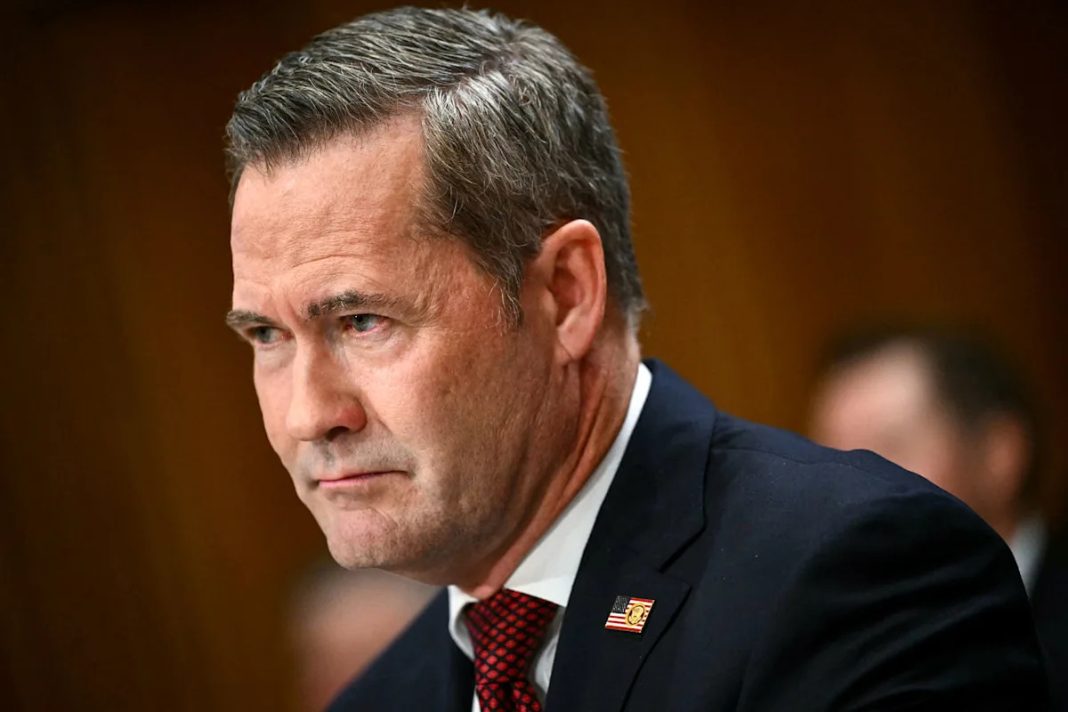After Republican Rep. Elise Stefanik of New York served Donald Trump well as a loyal sycophant, the president prepared to reward her with a plum position: U.S. ambassador to the United Nations. At least, that was the original plan.
A couple of months into the year, however, GOP leaders in Congress, noticing their narrow majority and fearful about Democratic over-performance in special elections, decided that they weren’t eager to let Stefanik go. So the president pulled the plug on her nomination in late March — despite how easily she would’ve been confirmed.
It took nearly six months, but her replacement is finally on his way to Turtle Bay. NBC News reported:
The Senate on Friday approved former White House national security adviser Mike Waltz to serve as the U.S. ambassador to the United Nations, ending a nine-month ordeal where the U.S. was without a permanent representative to the organization. The vote likely will allow Waltz to participate in next week’s U.N. General Assembly in New York, easing earlier concerns he wouldn’t be confirmed in time.
The vote on Waltz could easily have gone the other way. When his confirmation vote reached the floor, 10 senators were absent (there’s a reason Friday afternoon votes are uncommon), and Republican Sen. Rand Paul of Kentucky opposed Trump’s nominee.
That might’ve spelled doom for Waltz, were it not for the fact that three Senate Democrats — Sens. John Fetterman of Pennsylvania, Mark Kelly of Arizona and Jeanne Shaheen of New Hampshire — voted to confirm him, resulting in a 47-43 final tally.
This outcome might’ve been difficult to imagine in the spring. As regular readers know, Waltz’s troubles began in earnest, of course, in March after he organized a Signal chat to discuss sensitive operational details of a foreign military strike. That chat accidentally included a journalist.
In the days that followed, there were multiple reports that the Signal chat about a military operation in Yemen was not the first of its kind and that Waltz also allegedly used a private email account to conduct government business.
Publicly, the White House backed Waltz, but NBC News reported that Trump had privately “expressed frustration” with his aide. That coincided with a Politico report on a private presidential meeting in which top officials, including Vice President JD Vance, told Trump to “consider showing him [Waltz] the door.”
A day later, The New York Times reported that the president sought the counsel of a variety of people, asking whether to oust Waltz.
The scuttlebutt eventually died down, but there was ample evidence that Waltz had been privately sidelined in the West Wing, putting his future in jeopardy. When Trump did oust him, the president offered a consolation prize: an influential diplomatic post.
Complicating matters, Waltz, a former three-term congressman, didn’t exactly have a strong reputation to lean on. On the contrary, the Florida Republican cultivated an unmistakable track record for sycophantic Trump support (he even co-sponsored a bill to rename Dulles Airport after Trump) which is hardly the kind of background one might expect for an ambassador to the United Nations.
And yet, the White House, Senate Republicans and three Senate Democrats gave him the promotion anyway.
This post updates our related earlier coverage.
This article was originally published on MSNBC.com

